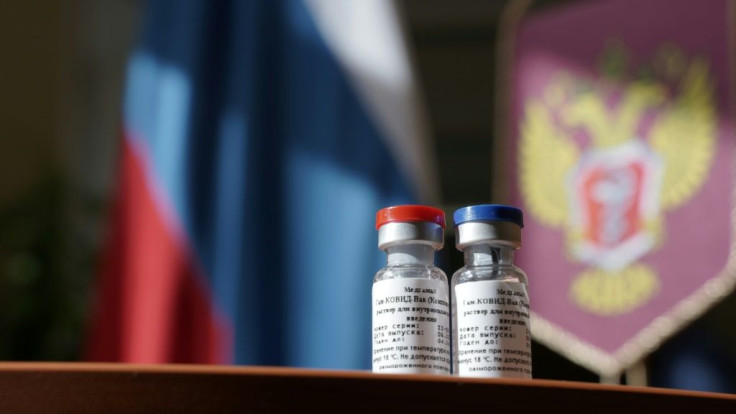Russia Names Coronavirus Vaccine After Historic Space Mission
KEY POINTS
- Russia announced that its COVID-19 vaccine received regulatory approval
- Russia named the vaccine after Earth's first artificial satellite
- Experts doubt the effectiveness of Russia's vaccine
Russia has unveiled the name for its claim to the first approved vaccine for COVID-19. It will be called Sputnik V for overseas markets.
On Tuesday, Russia announced that the vaccine it has been working on for COVID-19 received the necessary regulatory approval for foreign markets. Kirill Dmitriev, head of the Russian Direct Investment Fund, said that over 20 countries have already submitted requests for a total of 1 billion doses of the vaccine, Reuters reported.
The name of the first approved coronavirus vaccine is a nod to the country’s historic space mission and the first satellite it sent to space. Launched on Oct. 4, 1957, Russia’s Sputnik 1 became the first artificial satellite to orbit Earth.
It followed an elliptical low-Earth orbit for about three weeks before its batteries died. The satellite, which measured about 23 inches in diameter, remained in space for about two months before falling back to Earth.
Aside from being Earth’s first satellite, the successful launch of Sputnik 1 was a historic event for Russia as it sparked the Sputnik crisis, which was a period of public fear in the U.S and Western nations that stemmed from the growing technological capabilities of the Soviet Union. The event also led to the space race between Russia and the U.S. during the Cold War.
For Russia, the name Sputnik V symbolizes its success in being the first country to receive approval for a COVID-19 vaccine. However, despite Russia’s success, several experts doubted the vaccine, especially since it received approval even though it was only tested on humans for less than two months.
One of the experts who criticized Sputnik V was Derek Lowe, a chemist who is currently working in the field of preclinical drug discovery in the pharmaceutical industry.
“There is no way that you can responsibly ‘approve’ a vaccine after it’s only been into human trials for what numerous reports say is less than two months,” Lowe stated in an opinion piece published through the blog In the Pipeline by the journal Science Translational Medicine.
“That’s about enough time to do the first steps, a Phase I trial that gives you some idea of immune response across more than one dose,” he continued. “It is simply not enough time to do a reasonable efficacy workup as well, and absolutely not enough time to get any sort of reading on safety.”

© Copyright IBTimes 2024. All rights reserved.





















